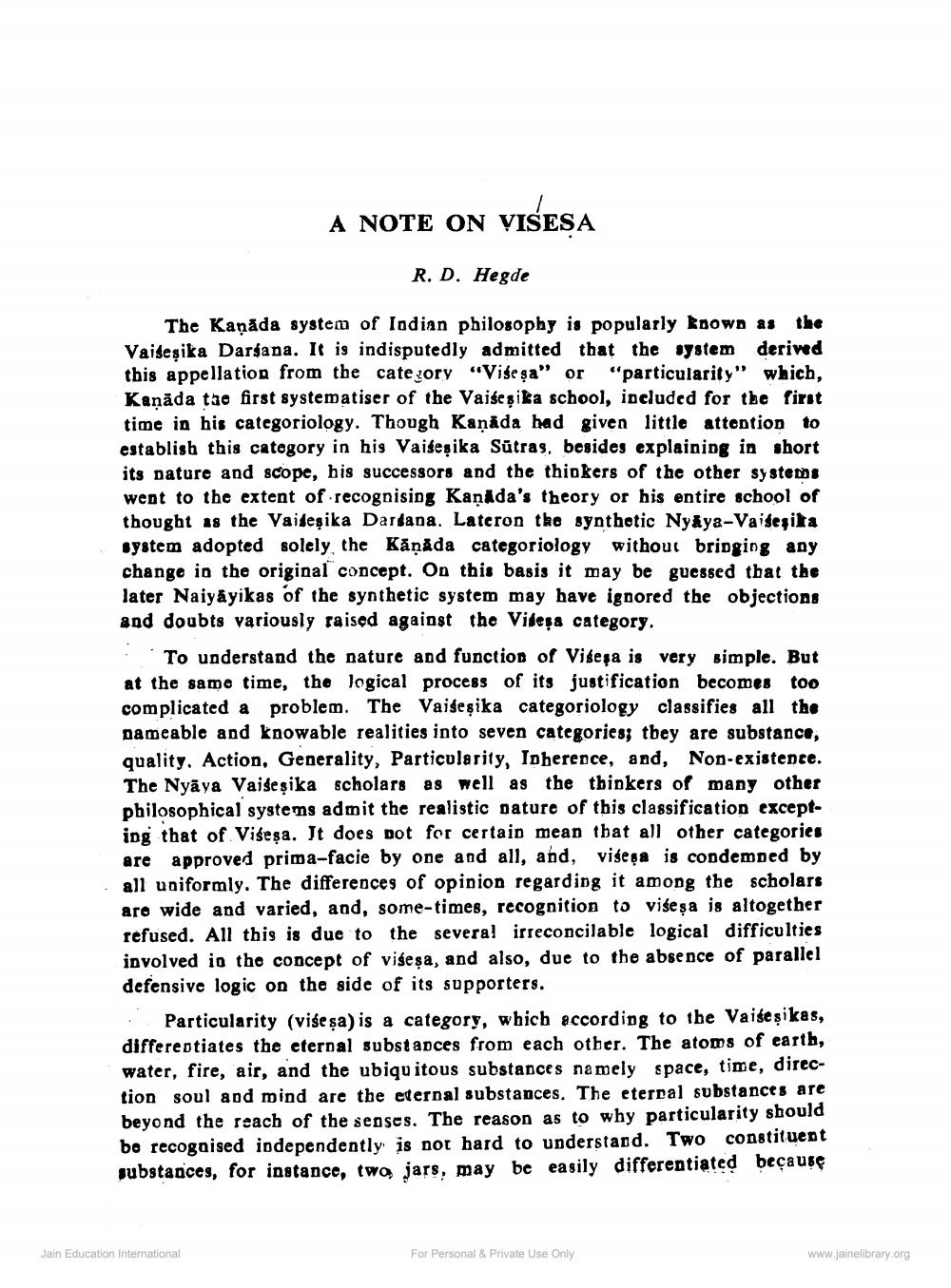________________
A NOTE ON VISESA
R. D. Hegde
The Kanada system of Indian philosophy is popularly known as the Vaiseşika Darsana. It is indisputedly admitted that the system derived this appellation from the category"Visesa" or "particularity" which, Kanāda the first systematiser of the Vaiścșika school, included for the first time in his categoriology. Though Kaņāda bad given little attention to establish this category in his Vaiseșika Sūtras, besides explaining in short its nature and scope, his successors and the thinkers of the other systems went to the extent of recognising Kanada's theory or his entire school of thought as the Vaideșika Dargana. Lateron the synthetic Nyåya-Vaisesita system adopted solely, the Kāņåda categoriology without bringing any change in the original concept. On this basis it may be guessed that the later Naiyayikas of the synthetic system may have ignored the objections and doubts variously raised against the Videșa category.
To understand the nature and function of Vigeza is very simple. But at the same time, the logical process of its justification becomes too complicated a problem. The Vaiseșika categoriology classifies all the Dameable and knowable realities into seven categories; they are substance, quality, Action, Generality, Particularity, Ioherence, and, Non-existence. The Nyāya Vaiseșika scholars as well as the thinkers of many other philosophical systems admit the realistic nature of this classification excepting that of Višesa. It does not for certain mean that all other categories are approved prima-facie by one and all, and, viseșa is condemned by all uniformly. The differences of opinion regarding it among the scholars aro wide and varied, and, some-times, recognition to višeşa is altogether refused. All this is due to the several irreconcilable logical difficulties involved in the concept of visesa, and also, due to the absence of parallel defensive logic on the side of its supporters.
Particularity (visesa) is a category, which according to the Vaiseșikas, differentiates the eternal substances from each other. The atoms of earth, water, fire, air, and the ubiquitous substances namely space, time, direction soul and mind are the eternal substances. The eternal substances are beyond the reach of the senses. The reason as to why particularity should bo recognised independently is not hard to understand. Two constituent substances, for instance, two, jars, may be easily differentiated because
Jain Education International
For Personal & Private Use Only
www.jainelibrary.org




